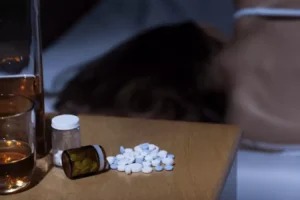How to Write a Letter to a Person in Rehab

I will support you through the ups and downs, the victories and setbacks. While I cannot walk this path for you, I will be by your side, offering encouragement, love, and unwavering support. Together, we can overcome the challenges of addiction and build a brighter future. If you need help supporting your loved one through alcohol or drug rehab, please contact our professional support team at The Hader Clinic. We provide resources, including substance abuse interventions. The family and friends of an individual who is in treatment for a substance use disorder can experience frustrations and bewilderment as to how to help.
Share Your Experiences
I am glad you did it, and I want you to know that we’re still here for you. As a friend or family member, you may worry that communicating with them may lead to an argument. A conversation may result in passive-aggressive remarks, indifference, frustration, sadness, or a deeper conflict.
- Knowing what to say to someone in rehab is crucial, as our words hold power and you do not want to cause someone to stumble or feel defeated.
- It’s not an easy path, but I believe in your strength and resilience.
- Knowing what to write in a letter to someone in recovery is essential before the letter is written.
- Share how their addiction has affected you, your relationship, and others around them.
- Reinforce their value as a person by reminding them that they are deserving of love, happiness, and success.
Avoid saying anything that may make them feel horrible about themselves
- Whether you’re offering encouragement, expressing pride, or simply letting them know you’re there for them, your words can provide much-needed comfort and strength.
- Remind them of their goals and the progress they have already made and how proud you are of them for taking this step.
In this article, we’ll explore some tips and ideas on what to write to someone in rehab. Recovery Ranger is a website that offers direction and support for those seeking to overcome addiction and achieve lasting sobriety. Our team of specialists helps individuals navigate the recovery process and stay motivated.
Family Program

It is essential to use positive and healthy language when telling someone you love and support them. Helpful phrases can be encouraging and promote the building of trust and hope for recovery. Those in recovery often feel alone, so reinforcing continuing support is vital communication. Avoid blame and negativity at all costs when writing a letter to someone in rehab.

#6. Offer Practical Support
Let them know that you love them and will be there for them in any way you can. Let them know that you believe in them and that you will be there for them when they return home. Your words of support and encouragement can be a great source of comfort and hope during their time in rehab.
#5. Acknowledging Strength and Progress in Recovery

Then there was that night you were driving under the influence and got into an accident. Not only because I feared the worst for your health, but because you had become the very thing that had driven you to addiction in the first place. Ever since, I stay awake at night, dreading a call telling me you’ve hurt yourself or someone else. It’s because I know that we will always be connected that I’m writing this letter. Ever since you were in that car accident, I know you’ve been abusing your prescription pain meds. I can’t possibly understand the fear and pain you felt in those terrifying moments—or what emotions you are experiencing now that cause you to want to keep taking more pills.
Avoid Triggers
Family counseling is one of the reasons why The Recovery Village is a trusted resource for overcoming substance use disorders. Other ways the facilities and staff are an ally against addiction include quality customer service and a full continuum of care for all types of addiction and needs. Keeping in touch with a loved one during their time in rehab has both benefits and potential drawbacks. Most of us get uncomfortable when walking into an unknown situation, and the same is true for someone entering a rehab program. Even though your contact may be limited, especially for the first few weeks of the program, it can help your loved one to know you are there for them. Remind them of their inherent value and worthiness of a happy, healthy life.

Be honest about the impact on relationships, health, and overall well-being. Express your concern for their future and emphasize the urgency of seeking treatment. Sometimes when I’m at a loss, I turn to the words of others. Whether you are a family member or friend of an addict, or perhaps struggling/fighting/in recovery yourself, my wish is that you hear these words. That you remember each day, each hour, each minute, you are getting stronger.
Share Inspirational Quotes
Begin by acknowledging that addiction is a disease and not a personal failing. Show compassion and avoid judgmental language to create an open and safe environment. If someone in rehab wants to leave early, it’s crucial to be understanding and empathetic. They might be going through a lot emotionally and have doubts. Start by addressing their concerns without being how to write a letter to someone in rehab judgmental. We help individuals identify areas for improvement while acknowledging their progress.
